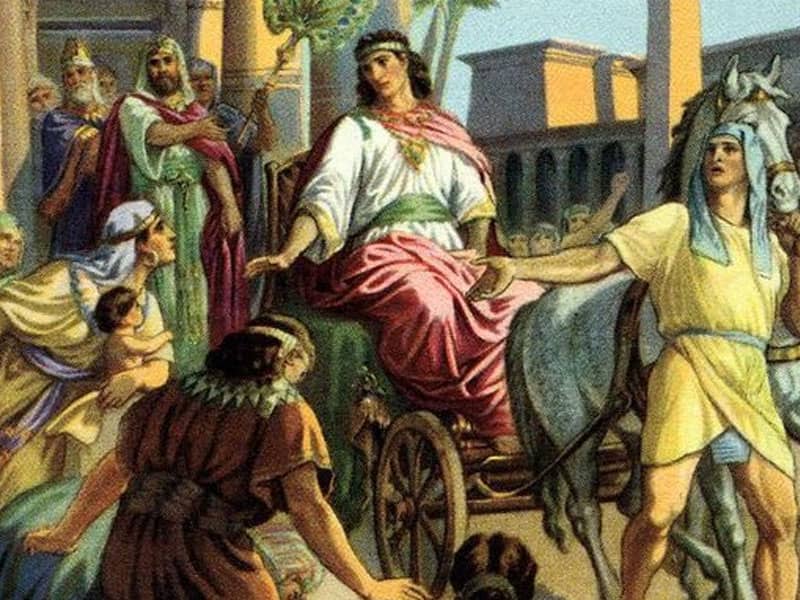Don't get me wrong, "Esther" is still a kajillion times better than 90 percent of the Christian kid stuff out there. The big idea behind Big Idea, the company that created VeggieTales, remains that Christian values can be funny and well done at the same time. Even a lesser effort like "Esther" makes other Christian kid-vid look pathetically amateurish and hokey.
And they continue to raise the bar. With "Esther," Big Idea continues to improve their computer-generated animation. The opening credits run over a spectacular long shot that pans richly detailed countryside. Some lovely set pieces--a beauty pageant in an intricately drawn theater almost looks like a live action sequence--show off Big Idea's technical wizardry.
But great animation can only carry a movie so far. What "Esther" lacks is the energy and quick pace of the typical Veggie story. Based on the biblical book of Esther, this tale opens with the king of Persia throwing his first queen out for insubordination (she refuses to make him a sandwich in the middle of the night). As a result, the king sends his henchman Haman out to gather all the eligible bachelorettes for a beauty pageant, the winner of which will become the new queen. Among these young women is the teenager Esther. Understandably reluctant to hit the road with Haman, Esther is convinced by her cousin Mordecai, a guard at the palace who has had some run-ins with Haman, to go along.
At the palace, Esther is frightened and unsure why this is happening to her. Mordecai comforts her, reminding her that God has a reason for bringing her to this place. After winning the beauty pageant and becoming queen, Esther is even more insecure of her role.
But before long, the spiteful Haman tricks the king into banishing Mordecai and all of Mordecai's relatives to the Island of Perpetual Tickling--not knowing that this means banishing Esther as well. It falls to Esther to save the family. Can she find the courage to confront the king, reveal Haman's true nature, and stand up for the truth? Mordecai is there to tell her that she never has to be afraid to do what's right.
The Bible moves Esther's story along pretty quickly. Big Idea's version creeps along, taking nearly half its 36-minute running time to get to the major plot point. Meantime, it's hard to know if this is Esther's story or Mordecai's. Esther hardly appears in the first half of the video, and when she does, she's dull and listless. In an effort to show her as an innocent teenager, her voice and the words she's given to say fall into an unendearing sullenness. If this was Big Idea's chance to give viewers a strong female heroine, they've fumbled it, and that's a shame.
The tunes--normally among the best reasons to watch Veggie videos--are dark and lumbering this time. Only one song, a pageant contestant's ode to "Lost Puppies," hints at complex rhyme schemes and the plain fun of Veggie music. (Though Haman and the king do manage a duet that includes the phrase "zucchini-shaped sarcophagus." How often will you hear that in a kid's video?)
One more note: While the Veggie characters have never had arms, I've never really been bothered by their absence. But Esther desperately needs arms. Maybe it's because she's in full costume, unlike her fellow vegetables. Or maybe it's because she uses her "imaginary" arms much more than characters have in the past. But this is the first time I was truly disturbed by a veggie's double-amputee status.
Given their record of success, I little doubt that the next VeggieTales video down the pike will return to the humor, lightness, and silliness that has made the series such a success. But this one (my last one, I promise) seems to have rotted on the vine.

